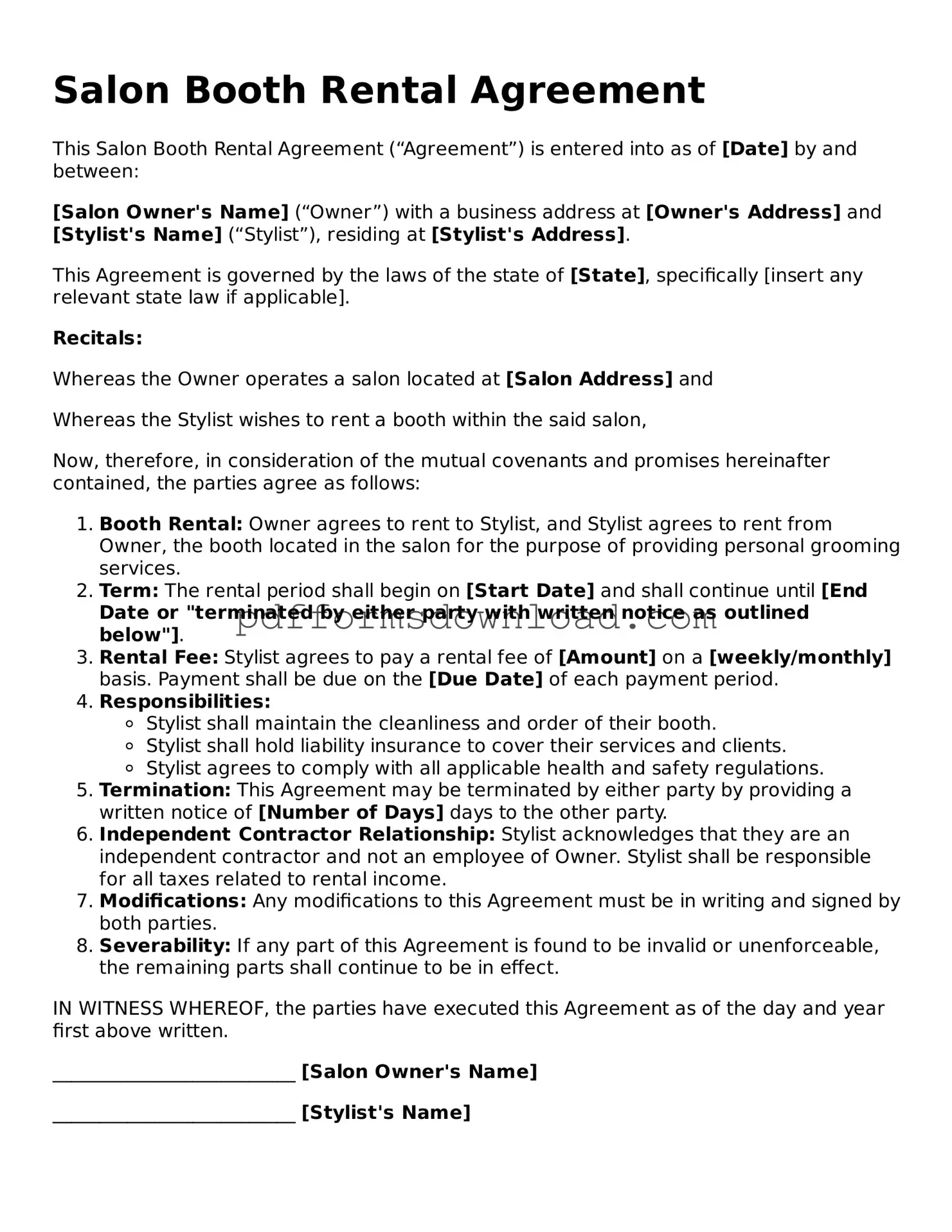What is a Salon Booth Rental Agreement?
A Salon Booth Rental Agreement is a contract between a salon owner and an independent stylist or beauty professional. This agreement outlines the terms under which the stylist rents a booth or space within the salon to conduct their business. It typically covers aspects such as rental fees, duration of the agreement, and responsibilities of both parties.
Who needs a Salon Booth Rental Agreement?
This agreement is essential for both salon owners and independent contractors. Salon owners need to protect their business interests, while stylists must ensure they have clear terms regarding their rental space and responsibilities. This document helps establish a professional relationship and sets expectations for both parties.
What should be included in the agreement?
A comprehensive Salon Booth Rental Agreement should include the following key elements: the rental fee, payment schedule, duration of the rental period, responsibilities of the stylist (such as maintaining cleanliness), and any rules or regulations specific to the salon. Additionally, it may address issues like liability, insurance, and termination clauses.
How long is a typical rental period?
The rental period can vary based on the agreement between the salon owner and the stylist. Common durations include monthly, quarterly, or yearly agreements. It’s important for both parties to agree on a timeframe that suits their needs and to specify this in the contract.
What are the payment terms usually like?
Payment terms can differ widely. Many agreements specify a fixed monthly rental fee, while others might include additional costs for utilities or supplies. Payment methods and due dates should also be clearly outlined to avoid misunderstandings.
Can the agreement be terminated early?
Yes, most agreements include a termination clause that outlines the conditions under which either party can end the contract early. This might include notice periods or specific reasons for termination. It’s crucial to read this section carefully to understand the implications of ending the agreement prematurely.
What happens if there is a dispute?
In the event of a dispute, the agreement should specify how conflicts will be resolved. This might include mediation or arbitration processes. Having a clear procedure in place can help both parties address issues calmly and professionally.
Is liability insurance necessary?
While not always required, obtaining liability insurance is highly recommended for stylists. This insurance can protect against potential claims arising from accidents or injuries that may occur while providing services. It’s wise to discuss insurance requirements with the salon owner and include them in the agreement if necessary.
Can the terms of the agreement be negotiated?
Absolutely. Both parties should feel comfortable discussing and negotiating the terms of the agreement. Open communication can lead to a mutually beneficial arrangement. It’s important to document any changes made to the original agreement to ensure clarity.
Is a Salon Booth Rental Agreement legally binding?
Yes, once signed by both parties, the Salon Booth Rental Agreement is legally binding. This means that both the salon owner and the stylist are obligated to adhere to the terms outlined in the contract. It’s essential to read and understand the agreement fully before signing.

